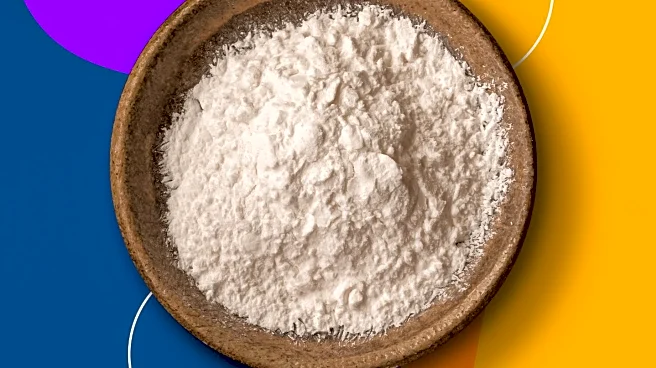What's Happening?
Recent research has highlighted the role of the microbial metabolite indole-3-propionic acid (IPA) in driving mitochondrial respiration in CD4+ T cells, which may offer protection against intestinal inflammation. The study, conducted under strict ethical
guidelines, involved both human and animal subjects, and explored the effects of IPA on various immune cell functions. IPA was found to decrease the percentage of certain inflammatory T cell populations, such as IFNγ+ TH1 and IL-17A+ TH17 cells, without affecting cell viability. The research also demonstrated that IPA influences cellular energy metabolism, increasing ATP content in activated T cells, which suggests a shift in energy production pathways. These findings could have implications for understanding immune responses and developing treatments for inflammatory diseases.
Why It's Important?
The discovery of IPA's role in modulating immune cell function and energy metabolism is significant for the medical field, particularly in the context of inflammatory diseases like inflammatory bowel disease (IBD). By potentially reducing inflammation through altered T cell activity, IPA could lead to new therapeutic strategies for managing conditions characterized by excessive immune responses. This research may pave the way for novel treatments that target metabolic pathways in immune cells, offering a more precise approach to controlling inflammation and improving patient outcomes. The broader impact could extend to enhancing our understanding of gut microbiota's influence on systemic health and disease.
What's Next?
Further research is needed to explore the therapeutic potential of IPA in clinical settings, particularly for patients with inflammatory diseases. Clinical trials could be designed to assess the efficacy and safety of IPA-based treatments, potentially leading to new interventions for conditions like IBD. Additionally, understanding the mechanisms by which IPA affects immune cell metabolism could inform the development of targeted therapies that modulate immune responses more effectively. Researchers may also investigate the role of gut microbiota in producing IPA and its broader implications for health and disease management.
Beyond the Headlines
The study raises important questions about the ethical considerations of using microbial metabolites in therapy, particularly regarding long-term effects and potential impacts on gut microbiota balance. It also highlights the need for interdisciplinary approaches combining microbiology, immunology, and metabolic research to fully understand the implications of these findings. The cultural and societal dimensions of gut health and its influence on overall well-being may also gain more attention, potentially shifting public health strategies towards microbiome-focused interventions.
















